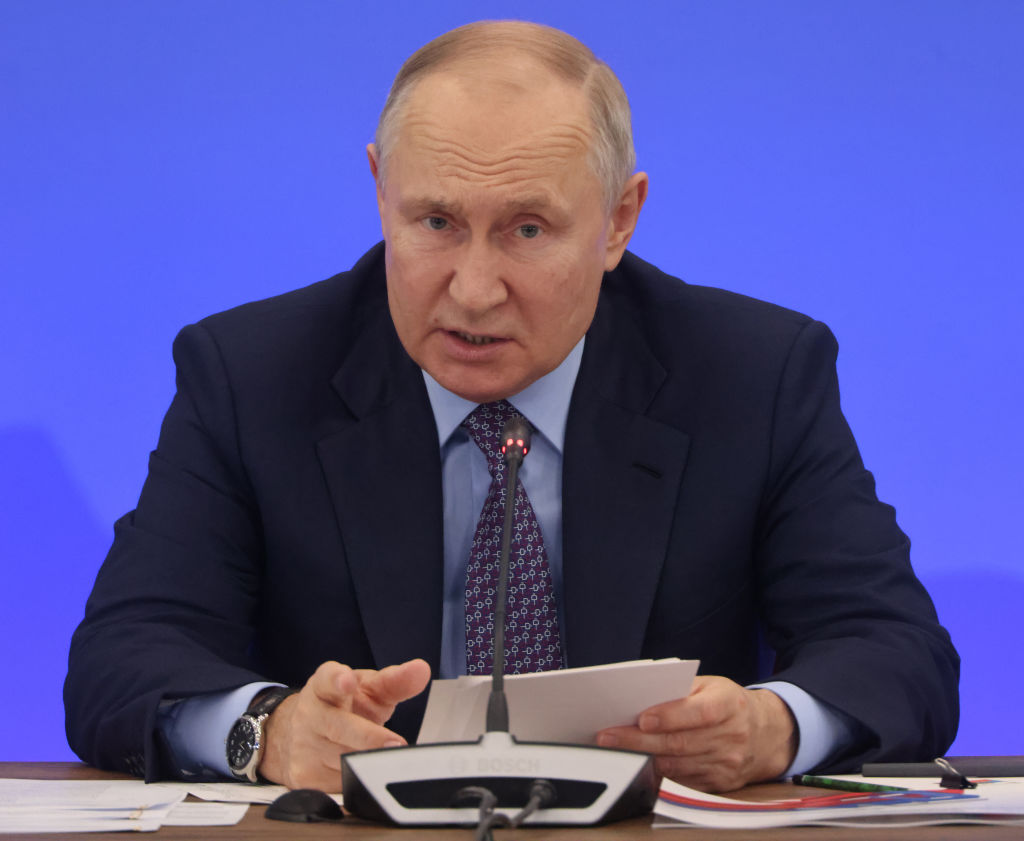Russian President Vladimir Putin is threatening Latvia with “unhappiness” after it brought in legislation the Kremlin sees as targeting Latvia’s Russian population.
“I don’t think happiness will come in the home of those who implement such policies,” Putin said in reference to the large proportion of the Russian-speaking population in Latvia affected by the legislation.
“If they adopt such a policy regarding people who wanted to live in this or that country, worked there, created some benefits for this country, and they are treated like pigs there, then eventually they themselves will have to deal with such a piggery in their country,” the president added.
Latvia is enacting rules that require citizens of the Russian Federation to now obtain specific documentation and request new permanent residency status should they wish to remain.
In early October, Latvian authorities warned some 3,255 Russian citizens they would have to leave the country as their old permanent-residence permits had expired on September 2 this year.
Putin threatening Latvia that they will be treated "with the same dirt-like attitude".
Context: Around 3,500 Russian citizens in Latvia received letters from the migration authority asking them to leave the country. The government body said on September 21 that they were people… pic.twitter.com/dmpOFi5idU
— Anton Gerashchenko (@Gerashchenko_en) December 4, 2023
Putin accused the Baltic states, which have significant Russian minorities within their borders, of being “Russophobic”.
“We know what Russophobia is, we have been dealing with it for a long time. In the first place, of course, all this happened before the eyes of the whole world in the Baltic countries, long before the ‘special military operation’,” he said, using the Russian term for its invasion of Ukraine.
“That has nothing to do with it at all. Someone may have decided to use the ‘special military operation’ to solve some of their domestic political problems, but this is their business. Of course, it does them no credit.”
Putin was speaking at a meeting with members of the Kremlin-controlled Human Rights Council – a Russian body that shares the same name as the non-associated UN group.
At the meeting, regarding Latvia – where Russians who fail the local language competence exams and do not complete a supplementary questionnaire are deported – Putin stated: “Every country wants people living on its territory to respect the traditions, culture, and language of the host country.”
He also described such exams as “unquestionably outside the legal regime of almost all civilised countries”.
“This is an odd invention of those who claim to be democratic countries. It is, of course, unpleasant, and it is now acquiring new qualities and a broader scope,” Putin remarked.
His comments may encourage Russians living abroad to return to their ancestral motherland, observers say.
According to Russian media agency Tass, Putin added: “If they do not want to leave, but they are deported, there is nothing we can do about it, but we should create appropriate conditions for these people.”
Russian TV personality and Kremlin supporter Vladimir Solovyov praised what he apparently saw a prospective expansion of the country’s “empire” towards the Baltics.
He said it sounded as if Latvia, Lithuania and Estonia “would fall within 15 minutes of Russia’s invasion”.
Because the countries in question are NATO members, an attack on the Baltics would trigger an immediate reaction from all the other NATO countries.
State TV pundits on Vladimir Solovyov's show rejoiced that the Russian empire is expanding and expressed their amazement at the "stupid" Westerners who still can't figure out modern Russia, which has been "kicking their ass for centuries."https://t.co/tPhImLryEO
— Julia Davis (@JuliaDavisNews) December 2, 2023
Latvian President Edgars Rinkēvičs earlier warned that Putin was dreaming of restoring the Russian Empire of the 19th century.
Rinkēvičs noted that it was now time to strengthen the relevant defence systems, adding that NATO and the European Union had “learned a lot from Ukraine’s experience” regarding Russia.





